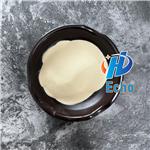Description
Proteases (also known as proteinases or peptidases) hydrolyze the peptide bond between amino acid residues in a polypeptide chain. Proteases may be specific and limited to one or more sites within a protein, or they may be nonspecific, digesting proteins into individual amino acids. The ability to digest a protein at specific points is critical to mass spectrometry and many other protein experiments. For example, proteases are used to cleave fusion proteins or remove single amino acids for protein sequencing.
Biological Functions
Proteinases are found in all organisms and are involved in all areas of metabolism. During programmed cell death, proteases digest cellular components for recycling. Plants deploy proteases to protect themselves from fungal or bacterial invaders. In the biotechnology industry, proteases have many uses. For example, they are included as additives in detergents to digest proteins in ketchup, blood, or grass stains.




